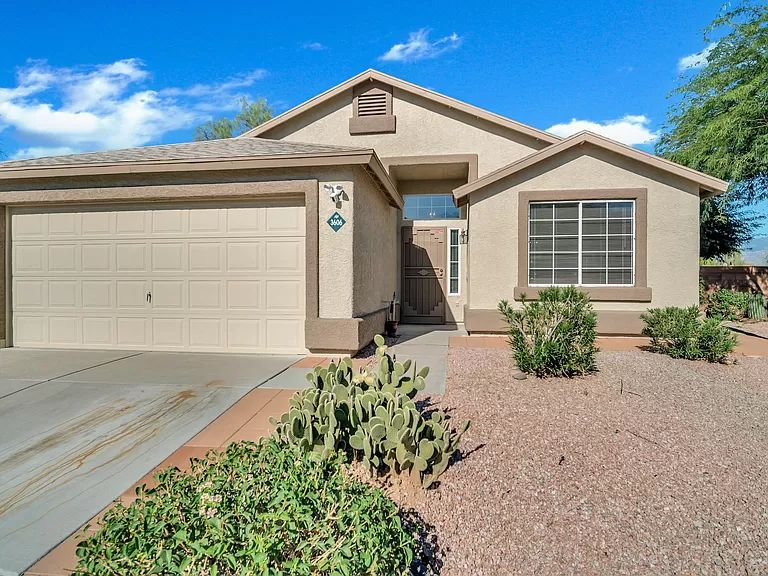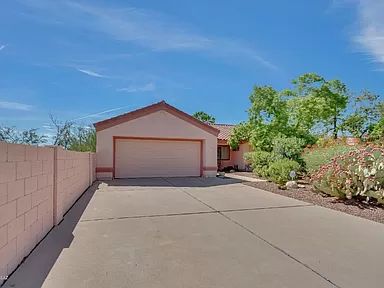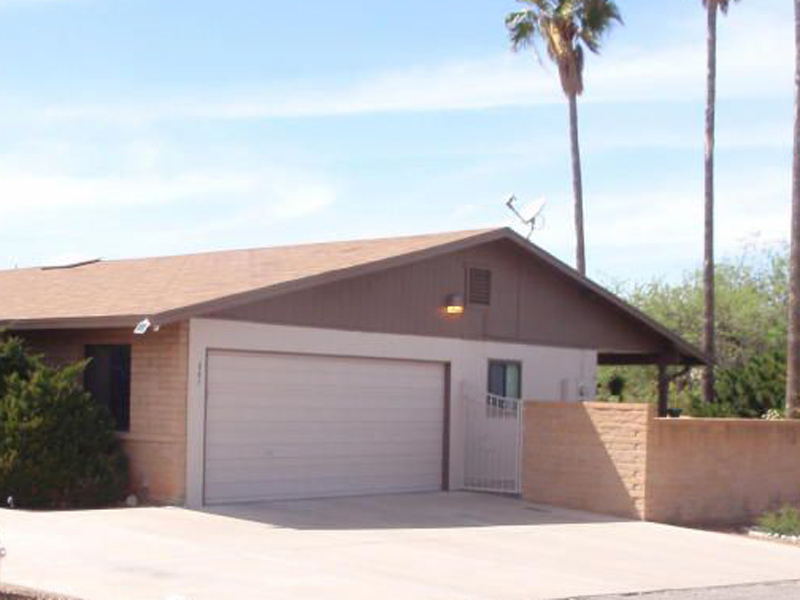Is Your Garage Door Stuck? Here's What to Do Initial
When your garage door won't open, start with these essential safety and security checks before attempting any kind of fixings. First, make sure nobody is standing near the door and that cars are free from the opening. Look for evident indications of damage like broken panels, curved tracks, or hanging cable televisions. If you see a snapped spring or seriously harmed components, stop promptly and call an expert—-- these fixings require specific tools and expertise to take care of safely.

Inspect These 6 Points Before Calling a Specialist
Before presuming you need expensive repair work, go through this quick analysis checklist that solves most garage door issues:
-
Power source: Validate the opener is plugged in and the electrical outlet is functioning
-
Remote batteries: Change dead batteries in your remote
-
Manual lock: Inspect if someone mistakenly engaged the hand-operated lock
-
Blockages: Seek particles blocking the door's course or sensing units
-
Emergency release: Make sure the red emergency cord hasn't been drawn
-
Breaker: Confirm the garage circuit hasn't stumbled
These simple checks deal with roughly 70% of garage door issues without calling for professional treatment.
10 Usual Factors Your Garage Door Will Not Open
Recognizing why your garage door opener isn't working aids you choose the right remedy. Here are the most frequent reasons house owners experience:
Dead remote batteries stand for the most basic repair—-- when batteries die, the remote can't send signals to the opener. Power blackouts or stumbled breakers reduced electrical energy to the motor. Busted springtimes prevent the door from raising properly and call for prompt professional attention. Sensor misalignment reasons safety systems to obstruct door procedure. Track obstructions quit rollers from moving efficiently. Electric motor overload triggers automatic shutoffs when the opener finds resistance. Restriction switch issues puzzle the opener about door placement. Cable damage interferes with the lifting system. Weather-related issues influence door movement during severe temperatures. Part wear from age slowly lowers system efficiency.
Problem # 1: Dead Push-button Control Batteries
When your wall button works yet your remote doesn't, dead batteries are generally the wrongdoer. The majority of garage door remotes use either 3-volt lithium or 12-volt alkaline batteries. Get rid of the back cover of your remote average cost to replace garage door springs and inspect the battery kind. Replace with fresh batteries and evaluate the remote. If it still does not work, you might require to reprogram it to your opener. Consult your opener's guidebook for certain reprogramming directions, as the process varies by manufacturer.
Problem # 2: Power Supply Issues
Garage door power troubles commonly come from loosened links or stumbled circuits. Inspect that the opener is securely linked into its electrical outlet—-- vibration can loosen connections in time. Examine the outlet with one more gadget to validate it's functioning. Analyze your home's breaker box for stumbled circuits, specifically if you've experienced storms or power changes. GFCI outlets might have stumbled and require resetting. If the opener has power however will not react, the problem most likely lies somewhere else in the system.
Issue # 3: Broken or Damaged Springs
Damaged garage door springtimes are among one of the most hazardous elements to deal with. If you listen to a loud bang from your garage or notice the door feels exceptionally heavy when attempting to raise by hand, a spring has actually likely broken. Torsion springs run horizontally above the door, while expansion springs rest on either side. Never ever attempt springtime repairs on your own—-- these components save remarkable tension that can create significant injury or fatality. Expert substitute typically costs $150-$300 but ensures your security.
Issue # 4: Blocked Safety And Security Sensing Units
Modern garage doors feature safety sensors that stop closure when things are identified. These sensors can quit the door from opening up if they're unclean, misaligned, or blocked by particles. Tidy sensor lenses with a soft cloth and make certain absolutely nothing obstructs the unseen beam of light between them. Inspect that sensing units are properly aligned—-- most have indicator lights that reveal connection standing. Sensor troubles frequently fix with simple cleaning and change.
Trouble # 5: Track Obstructions or Damages
Garage door tracks guide rollers as the door goes up and down. Dust, debris, old oil, or small objects can jam the system. Examine tracks aesthetically and eliminate any kind of obstructions with a brush or towel. Try to find damages, bends, or warping that might hinder smooth operation. Minor track adjustments are possible for useful home owners, however substantial damage needs professional repair service to stop further issues or safety hazards.
Trouble # 6: Garage Door Opener Electric Motor Issues
When the garage door motor runs but the door doesn't move, numerous problems could be liable. The motor might be overwhelmed and turning off as a precaution. Equipment wear, especially in older units, can protect against appropriate procedure. Chain or belt drive problems affect power transmission. If you hear uncommon grinding, clicking, or humming noises, stop making use of the opener instantly. Electric motor repair work usually cost more than substitute, specifically for units over one decade old.
Step-by-Step Do It Yourself Troubleshooting Overview
Follow this methodical strategy to garage door repairing while focusing on safety throughout the process:
Step 1: Examine the wall switch first. If it functions yet the remote doesn't, focus on remote concerns. If neither works, inspect power supply.
Step 2: Examine the hands-on release cord. If it's been pulled, the opener is disengaged from the door. Press the cart back to reconnect.
Step 3: By hand check the door by disengaging the opener and trying to lift the door by hand. It should relocate smoothly and stay in place when half-open.
Tip 4: Evaluate visible parts for damages, paying special interest to springtimes, wires, and tracks.
Step 5: Check all safety and security features including sensors, limit switches, and auto-reverse features.
Step 6: Examination different controls (remote, wall surface button, keypad) to separate the issue resource.
Constantly put on safety glasses and work gloves when performing inspections, and never effort fixings on springs or high-tension components.
When to Call a Professional vs. do it yourself Solutions

Knowing when to call a garage door professional versus trying do it yourself repair work safeguards both your safety and your pocketbook. Handle these concerns yourself: dead remote batteries, power supply troubles, minor track cleansing, sensor cleaning and placement, and standard lubrication.
Never ever try these repair work yourself: springtime substitute or change, cord repairs, major track realignment, electrical circuitry concerns, opener motor replacement, or any type of repair entailing high-tension elements. Expert specialists have specialized tools, training, and insurance coverage to take care of dangerous repairs safely.
Consider repair expenses versus substitute expenses, particularly for doors over 15 years old. Modern garage doors supply far better security features, power performance, and dependability than older models.
Emergency Garage Door Solutions
When you're stuck with a garage door that won't open up and need immediate accessibility, follow these emergency treatments:
Manual Procedure: Pull the red emergency release cord to disengage the opener. This enables hand-operated procedure however calls for correct strategy to avoid injury. Lift the door gradually and equally, utilizing leg muscle mass rather than your back. The majority of property doors evaluate 100-150 pounds, making them workable for most adults.
Momentary Fixes: If the door opens up by hand however won't keep up, prop it open with sawhorses or clamps—-- never use your body or vehicles as supports. For doors that won't close entirely, ensure the opening is protected if you have to leave.
Emergency Service: Lots of garage door business offer 24/7 emergency service for scenarios entailing safety and security issues, trapped lorries, or complete system failings. While much more pricey than regular service calls, emergency repair work give instant remedies when needed most.
Security Caution: What NOT to Do
Garage door security needs recognizing harmful fixings that must never ever be tried by property owners:
Never ever try to repair springtimes—-- they store sufficient energy to cause deadly injuries when they break or are poorly handled. Do not compel a stuck door—-- this can damage the opener, tracks, or door panels, producing more expensive problems. Stay clear of bypassing security functions—-- sensing units and auto-reverse mechanisms avoid significant injuries and home damage.
Don't overlook odd noises—-- grinding, scraping, or banging noises indicate problems that intensify over time. Never utilize the door if wires are frayed or damaged—-- the door can drop unexpectedly. Don't try electric fixings unless you're a qualified electrician—-- garage door openers make use of both 120V home current and low-voltage control circuits.

Preventative Maintenance to Prevent Future Problems
Normal garage door upkeep protects against most usual problems and expands system life-span considerably:
Monthly Tasks: Visual assessment of all components, evaluating auto-reverse safety and security functions, inspecting and tightening up equipment, and cleansing tracks and sensing units.
Quarterly Jobs: Lubing all relocating get rid of ideal garage door lube, screening guidebook procedure, and checking weather condition sealing.
Yearly Jobs: Specialist evaluation and tune-up, springtime modification if required, and opener maintenance consisting of belt or chain change.
Seasonal Jobs: Getting ready for weather extremes, examining insulation, and readjusting opener setups for temperature changes.
Consistent maintenance costs much less than emergency situation repair services and ensures dependable procedure year-round.
Garage Door Won't Open Up FAQs
Why will not my garage door open with the remote but works with the wall surface switch?
This normally suggests dead remote batteries, signal interference, or the need to reprogram the remote. Check batteries initially, then consult your opener handbook for reprogramming directions.
Can I manually open my garage door if the power is out?
Yes, pull the red emergency release cord to disengage the opener, then lift the door manually. Be gotten ready for the door's full weight and lift with proper strategy to prevent injury.
How do I recognize if my garage door spring is broken?
Indications include a loud bang from the garage, the door feeling very heavy when lifting by hand, noticeable spaces in the spring coils, or the door only opening a couple of inches before quiting.
Is it secure to utilize my garage door if it won't open up all the way?
No, partial operation indicates mechanical issues that can intensify suddenly. Quit using the door and have it evaluated by a professional to prevent more damage or injury.
What should I do if my garage door opens yet won't close?
Check security sensors for obstructions or misalignment, take a look at the tracks for debris, and evaluate the auto-reverse function. If these don't solve the issue, get in touch with a professional.
How much does it cost to deal with a garage door that will not open up?
Prices vary commonly relying on the issue: battery replacement ($5-$10), specialist medical diagnosis ($50-$100), springtime substitute ($150-$300), or opener replacement ($200-$500).
Can weather affect my garage door's capacity to open?
Yes, extreme cold can enlarge lubricants and influence steel parts, while warm can trigger growth problems. A lot of issues deal with as temperatures stabilize, but relentless issues may need professional attention.
Why does my garage door open a few inches then quit?
This normally suggests broken springs, limitation switch troubles, or track blockages. The opener's safety and security features quit operation when resistance is identified, preventing damages to the motor or door.
Obtain Professional Aid for Facility Concerns
When do it yourself troubleshooting doesn't fix your garage door troubles, specialist technicians offer the experience and devices required for secure, enduring repair work. Certified professionals identify problems accurately, use manufacturer-approved components, and give warranties on their job.
Expert services consist of: comprehensive system inspections, spring and cable television substitute, opener fixing and replacement, track alignment and substitute, electrical troubleshooting, and emergency solution phone calls.
What to expect: ahead of time rates, accredited and insured technicians, same-day solution for lots of repair services, and follow-up maintenance recommendations.
Many garage door business supply free price quotes for significant repairs and can provide prompt solutions for urgent troubles affecting home safety and security or automobile accessibility.
Getting Your Garage Door Working Again
A garage door that won't open up doesn't have to wreck your day or damage your budget plan. Begin with simple troubleshooting steps like inspecting power, changing batteries, and taking a look at for apparent blockages. Numerous troubles have fast do it yourself options that recover regular procedure within minutes.
However, identify when professional assistance is essential—-- specifically for spring-related problems, electric problems, or complex mechanical failings. Attempting hazardous repair services on your own runs the risk of severe injury and often creates more costly issues.
Regular upkeep prevents most garage door problems and ensures trusted procedure for many years to find. When troubles do happen, address them promptly to prevent more expensive repairs and maintain your home's protection and convenience. Whether you need a straightforward battery substitute or total system overhaul, options exist to obtain your garage door functioning efficiently once more.
Eddie's Garage Door Service
5505 N La Canada Dr, Tucson, AZ 85704
(520) 965-8259